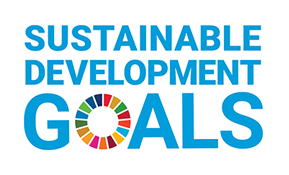At a GlanceReport 4—Funding Climate-Ready Infrastructure—Infrastructure Canada
Why we did this audit
- Infrastructure that is more resilient and less carbon intensive will lower economic and human costs incurred by Canadians in the future. Climate change effects are increasing and are rapidly becoming more severe and more frequent, and federal programs put in place to mitigate climate change and adapt to its effects need to be effective to minimize the cost of damage caused by these events.
- Information on expected GHG emission reduction and climate resilience outcomes from projects is key for demonstrating how these projects, and ultimately the funding programs, aim to contribute to more resilient, less carbon-intensive, and inclusive infrastructure. Reporting transparently and publicly on expected results is important because it informs Canadians about what the government expects to achieve with public spending on programs that are supposed to contribute toward its climate change goals.
Our findings
- Infrastructure Canada weakened the requirements of the Climate Lens tool while implementing a better approach.
- We found that Infrastructure Canada poorly managed climate-related information submitted by project proponents.
- We found that the weakened requirements under the second version of the tool hindered Infrastructure Canada’s ability to assess and combine at the program level the expected climate change mitigation and resilience outcomes of funded projects.
Key facts and figures
- Infrastructure Canada, with support from Environment and Climate Change Canada, developed the Climate Lens tool to promote and enable the estimation of expected reductions in GHG emissions, and the assessment of climate risks and resilience outcomes of proposed climate-ready infrastructure projects.
- Because Infrastructure Canada did not have complete or reliable information on the expected climate mitigation and resilience benefits of the projects it funded, it did not report publicly on the expected climate change outcomes of its infrastructure funding programs.
- The department has planned to invest more than $12.8 billion in 3 programs until 2033 to help fund infrastructure such as public transit.
Our recommendations
- To help ensure that it receives reliable information on the expected climate change benefits of infrastructure projects, Infrastructure Canada should require that information be prepared on the basis of clear, specific, and internationally recognized quality criteria for proponents to use when preparing emission reduction and climate resilience information for their proposed projects.
- To ensure the efficient management of climate mitigation and resilience outcomes information it receives from project proponents, and to ensure the completeness and reliability of this information, Infrastructure Canada should integrate its information management procedures, and establish effective and efficient data transfer protocols and quality controls as this information is pulled from submissions and transferred in internal systems.



Infrastructure Canada indicated that the Investing in Canada Infrastructure Program, the Disaster Mitigation and Adaptation Fund program, the Smart Cities Challenge, and the Green and Inclusive Community Buildings program were related to or aligned with the Sustainable Development Goals on industry, innovation, and infrastructure (goal 9), and on climate action (goal 13). We noted that the department also mentioned 2 other goals, on clean water and sanitation (goal 6) and on sustainable cities and communities (goal 11). However, we found that in its planning and reporting of results documents, the department did not identify targets with indicators for any of the Sustainable Development Goals it identified.
Visit our Sustainable Development page to learn more about sustainable development and the Office of the Auditor General of CanadaOAG.
Related information
| Entities | |
|---|---|
| Completion date | 28 February 2022 |
| Tabling date | 26 April 2022 |
| Related audits |
|